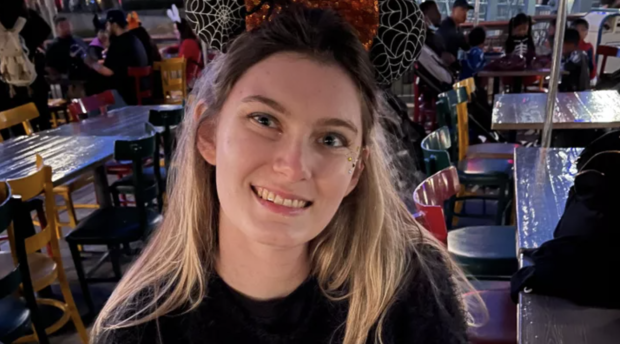Her Doctors Say She Probably Only Has 3 Years Left To Live Due To An Extremely Rare Disease: Now Her Family Is Fighting To Find Her A Cure Before It’s Too Late

Dallas, Texas. Anissa is a 23-year-old young woman who was diagnosed 5 years ago with an extremely rare disease called Lafora disease, and she has been fighting the disease for 2 years prior to her diagnosis.
“Lafora progressive myoclonus epilepsy is a brain disorder characterized by recurrent seizures (epilepsy) and a decline in intellectual function,” MedLine Plus explains.
“The signs and symptoms of the disorder usually appear in late childhood or adolescence and worsen with time.”
Seizures are not the only symptoms of the disease though; a person who has Lafora disease starts to lose their intellectual abilities and they also experience difficulties speaking, changes in their behavior, confusion, and depression.
“As the condition worsens, a continued loss of intellectual function (dementia) impairs memory, judgment, and thought,” MedLine Plus continues.
“Affected people lose the ability to perform the activities of daily living by their mid-twenties, and they ultimately require comprehensive care. People with Lafora progressive myoclonus epilepsy generally survive up to 10 years after symptoms first appear.”
Heartbreakingly enough, Anissa only has about 3 years left to live, and her family is now fighting to find her a cure before it’s too late.
“She is running out of time and needs community help to get treatment for her rare disease,” Anissa’s aunt, Crickett Hampton, wrote on a GoFundMe page. “I am helping to raise funding for her to receive treatment.”

GoFundMe; pictured above is Anissa
Sign up for Chip Chick’s newsletter and get stories like this delivered to your inbox.
“Helping fund Anissa’s fight for treatment will slow the progression of the disease and give her time as she waits for a cure.”
“Anissa suffers from daily seizures and dementia. She has a g-tube placed to use for all her medications and she experiences ongoing cognitive decline along with swallowing issues.”
“At the age of 23, Anissa receives full-time care at home from her family and nurses. One of the most heartbreaking aspects of Lafora disease is that it robs seemingly healthy teens of their full potential.”
Anissa is passionate about art, and she dreamed of getting to go to college to study it, however, her disease has prevented her from doing that.
Anissa isn’t even able to draw any longer because of the seizures she experiences and because her body makes jerky movements that make it extremely hard for her to hold a pencil.
It’s extremely saddening for Anissa to know that her peers are able to go to college, drive a car, and live independently, yet she is not able to do any of these things that many of us take for granted.
Eventually, Anissa will completely lose her ability to talk or walk as her disease progresses, if a cure isn’t found.
“Anissa has been fighting Lafora for 7 years and desperately needs this treatment,” Crickett said.
“She has participated in a two-year natural history study to collect data on the progression of the disease at UT Southwestern Medical Center in Dallas. The information gathered has established biomarkers to help drive a clinical trial that was to begin in 2021.”
“Unfortunately, the clinical trial was delayed due to Covid and other FDA requirements. The delay of this clinical trial was devastating to the family because Lafora progression never stops.”
Another factor that has greatly impacted clinical trials for Lafora disease is the fact that it’s so extraordinarily rare that there’s a huge lack of funding to study it.
A biotechnology company called EnAble Therapeutics is in the process of trying to get money to fund their treatment, and so, they are looking into obtaining grant money and investor money as well.
“Your donation could make this treatment possible for Anissa and others who suffer from this horrific disease,” Crickett continued.
“Time and slowing the progression are what Anissa urgently needs to make it to the clinical trial.”
Anissa’s family is hoping that the clinical trial in Dallas will be able to proceed shortly, but there really are not any answers as to how long that process will take to get underway.
If you would like to help Anissa’s family find a cure for her disease or help to cover Anissa’s medical bills, you can do that here.
More About:Human Interest





